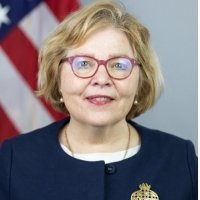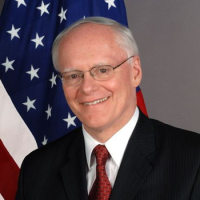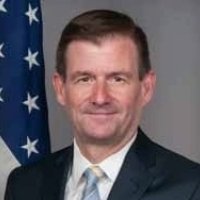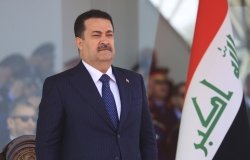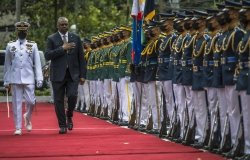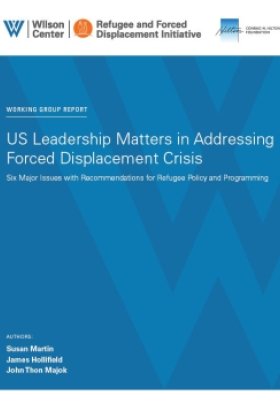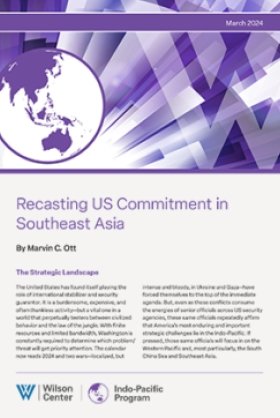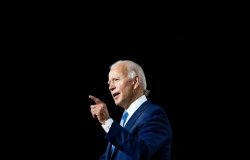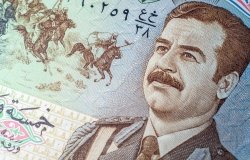Leonid Andronov / shutterstock.com
US Policy on Lebanon: A Conversation with Assistant Secretary of State for NEA Ambassador Barbara Leaf
Overview
Lebanon faces a plethora of economic and political challenges amidst a difficult regional and global geopolitical context. On the economic front, the country is suffering from the rapid collapse of its economy, a severely devalued currency, high debt, and rising poverty rates. On the political front, parliamentary elections that took place in May have yet to bring about significant change, as gridlock and infighting continue to impede presidential elections and block progress toward critical reforms.
In a change of fortunes, the United States successfully brokered an agreement on the maritime boundary between Lebanon and Israel, although the long-term impacts of the deal on Lebanon, its people, and the region remain to be seen. U.S. support to Lebanon is paramount to keep the country moving towards implementing much needed reforms, allowing Lebanon to rebuild institutions that are stronger, more transparent, and more capable than those that created the current crises.
The Middle East Program’s Lebanon Ideas Forum hosted a discussion with Assistant Secretary of State for Near Eastern Affairs Ambassador Barbara Leaf for a conversation on US policy on Lebanon moderated by Global Fellow Ambassador David Hale.
“Lebanon has been in extreme descent built on decades of poor governance, economic mismanagement, and rampant corruption,” Assistant Secretary Leaf stated at the outset of the event. This descent, accelerated by the COVID-19 pandemic, the 2020 Beirut port blast, and war in Ukraine, provides the basis for the issues that plague Lebanese society today, as well as shape US foreign policy on Lebanon.
Economic and Political Turmoil
The World Bank named Lebanon’s financial crisis one of the top three worst financial crises in the past 150 years. Assistant Secretary Leaf argued this is, “not only a result of poor governance, it’s a product of systemic corruption and mismanagement that has plagued Lebanon for decades and there is no illusion that things will change overnight.” Mismanagement has contributed to the collapsed economy and a severe energy crisis that exacerbates the economic turmoil; the country’s energy grid provides only just two to three hours of electricity per day. This lack of electricity also disrupts the provision of critical services, such as medicine, and, hinders Lebanese society.
According to Assistant Secretary Leaf, Lebanon’s best path out of economic toil is through loans from the International Monetary Fund (IMF); however these will require implementation of essential reforms as a prerequisite. Therefore, relief from the international community largely relies on elites’ willingness to make bold yet necessary changes to governance. Assistant Secretary Leaf contended that the US is prepared to work with a fully functioning government when it does form.
US Policy on a Path Forward
The US is Lebanon’s largest donor of foreign assistance, providing $778 million in assistance in FY2021 alone. With regard to US policy, Assistant Secretary Leaf stated, “It was clear that a bit more humanitarian aid here or there would be wholly insufficient.” Instead, she stressed that achieving stability depends on Lebanon’s ability to form a fully empowered government. In achieving this goal, she pointed to a few options at the disposal of the Biden administration: pressuring for government formation, supporting vulnerable populations, supporting the quest for IMF funding, supporting energy deals with Egypt and Jordan, bolstering resiliency of security forces, and pressing political leaders for critical reforms.
Ambassador David Hale inquired about the potential of the recently signed maritime agreement between Lebanon and Israel to bring about economic benefits for Lebanon with new access to energy resources. Assistant Secretary Leaf responded that the demarcation of a line separating the territory of the two states has created stability and security to attract foreign firms to explore what is commercially feasible to exploit in Lebanese waters. While gas could offer an economic boon to Lebanon, she stressed that it is not a replacement for much needed IMF funding which provides short term guarantees so long as Lebanese leaders move to make necessary reforms to secure international finance. Additionally, she confirmed that there was absolutely no cooperation between American negotiators and Hizballah in forming the deal.
Ambassador Hale concluded by asking about Lebanese civil society and its role in creating change within the state. Assistant Secretary Leaf response that the “health, strength and resilience of civil society in every country goes into the resiliency of that state.” She said that unlike countries such as Iran, the Lebanese diaspora can directly engage with civil society in Lebanon to provide support so that they can continue to provide necessary services at the ground level and work towards building a more resilient future for Lebanon.
Hosted By

Middle East Program
The Wilson Center’s Middle East Program serves as a crucial resource for the policymaking community and beyond, providing analyses and research that helps inform US foreign policymaking, stimulates public debate, and expands knowledge about issues in the wider Middle East and North Africa (MENA) region. Read more
Thank you for your interest in this event. Please send any feedback or questions to our Events staff.
